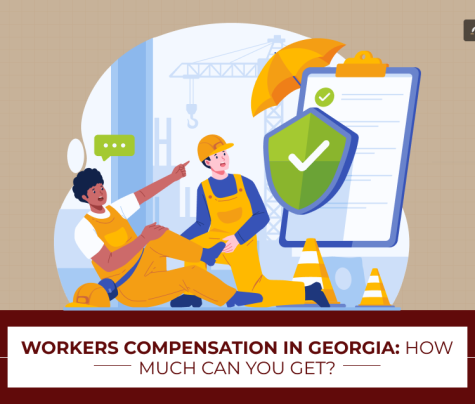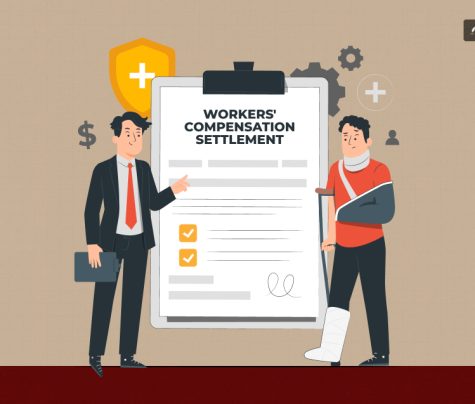
- In 2022, private industry employers reported 2.8 million nonfatal workplace injuries and illnesses. This marks a 7.5% increase from the previous year.
- Of these cases, 1.18 million involved days away from work, highlighting the significant impact on employees and businesses.
- There were 5,486 fatal work injuries in 2022, underscoring the importance of robust safety measures.
Understanding these numbers is the first step in recognizing the importance of workplace safety. Your workplace as an employer can be like a maze, and navigating workplace injuries can be challenging. Therefore, understanding your role as an employer is crucial.
Workplace injuries are more common than you might think. As an employer, your responsibilities include preventing injuries and providing adequate support when they occur.
If you are starting your new journey as an entrepreneur and employer, this blog is the only thing you need! In this article, I will take you through the essential steps, from immediate response to long-term care, ensuring you are well-prepared to handle any situation.
Employer Responsibilities for Injured Workers: Key Responsibilities of Any Employer!
When an employee gets injured on the job, it can be challenging for everyone involved.
But as an employer, knowing your responsibilities can help you navigate the situation more smoothly, support your workers, and reduce complications.
Here are the key responsibilities you, as an employer, should be aware of when managing workplace injuries.
1. Ensure Immediate Medical Attention
First and foremost, if a worker is injured, make sure they get the medical care they need right away.
Whether calling emergency services for serious injuries or sending them to a nearby clinic, timely care is essential.
Quick response ensures the employee’s well-being and demonstrates that you prioritize their health and safety, which can boost workplace morale and trust.
2. Report the Injury Promptly
In most regions, employers are legally required to report workplace injuries within a specific time frame. This typically means filing an official report with your state’s workers’ compensation board or agency.
Delays can lead to fines, legal trouble, and even insurance issues. So, keep track of the deadlines and ensure timely reporting to avoid these complications.
3. File a Workers’ Compensation Claim
Filing a workers’ compensation claim is crucial for the employee to receive benefits. These benefits include covering medical expenses, lost wages, and rehabilitation costs.
As the employer, you may need to assist with the paperwork, provide information about the incident, and ensure the insurance company has all the required documents. Making this process easy for your employee shows your commitment to their recovery.
4. Maintain Open Communication with the Injured Employee
One of the best ways to support your injured worker is by maintaining open and regular communication.
Keep them updated on the progress of their claim, discuss potential return-to-work plans, and check on their well-being. Employees who feel supported are more likely to return to work in good spirits and with a positive outlook.
This communication also helps clear up any confusion or concerns they may have about their benefits or responsibilities.
5. Accommodate Medical Restrictions
When an employee is ready to come back to work, they may have certain medical restrictions to follow. As an employer, you’re responsible for accommodating these restrictions whenever possible.
For example, this might mean offering a modified work schedule, adjusting tasks, or creating a “light-duty” position temporarily. These adjustments can help your employee ease back into their role while ensuring they don’t aggravate their injury.
6. Provide a Safe Work Environment
Preventing future injuries is also a critical responsibility. After any workplace injury, review the incident to identify any hazards or safety issues that may have contributed.
This might mean updating safety protocols, providing additional training, or ensuring equipment meets standards.
Creating a safer work environment benefits your current workforce and shows your commitment to long-term workplace safety.
7. Protect Against Retaliation
Finally, it’s important to remember that retaliating against an injured worker—for instance, by firing, demoting, or harassing them because they filed a claim—is illegal in most places.
Retaliation violates laws, damages workplace morale, and can lead to costly legal battles.
Show that you value your employees’ health and rights by fostering a supportive, non-retaliatory work culture.
What are the Rights of an Injured Worker?

When workers get injured on the job, understanding their rights is essential. Knowing these rights helps ensure they get the support and protection they need during recovery. You can check out bergellaw website for more information.
These rights are in place to ensure that injured workers are protected and supported through the recovery process. Furthermore, it helps them regain their feet without stress or unfair treatment.
Here’s a look at some of the most important rights that injured workers are entitled to:
1. Right to Medical Treatment
First and foremost, injured workers have the right to receive proper medical care for their injuries.
This includes everything from emergency treatment right after the injury to follow-up visits, therapy, and any ongoing treatment necessary for recovery.
Most workers’ compensation programs cover these expenses, so workers shouldn’t worry about paying out-of-pocket.
2. Right to File a Workers’ Compensation Claim
Injured workers can file a claim for workers’ compensation without fear of retaliation.
This claim enables them to access benefits, which might cover medical expenses, lost wages, and rehabilitation costs.
Employers are legally prohibited from retaliating against employees for filing a claim, meaning they can’t be fired, demoted, or harassed because of it.
3. Right to Return to Work When Ready
Once medically cleared, workers have the right to return to their jobs or, if necessary, a modified position that accommodates any limitations.
Employers should respect this right and provide suitable accommodations to help workers reintegrate into the workplace smoothly.
4. Right to Appeal a Denied Claim
Finally, if an organization denies the workers’ compensation claim of the employee, injured workers have the right to appeal the decision.
This process usually involves reviewing the claim with the workers’ compensation board or relevant state agency. Understanding this right is crucial, as appeals can be important in securing needed benefits.
Building Safe Working Conditions
Taking these responsibilities seriously can make a world of difference for both you and your injured worker.
It builds trust, reduces misunderstandings, and can make the return-to-work process much smoother.
Remember, supporting your employees through a difficult time is the right thing to do and helps create a more positive, productive workplace in the long run.
Read Also:
- What Does A Debt Relief Lawyer Do?
- How To Adopt A Child In 5 Easy Steps
- How To Design The Best Law Firm Website In 7 Easy Steps











0 Reply
No comments yet.